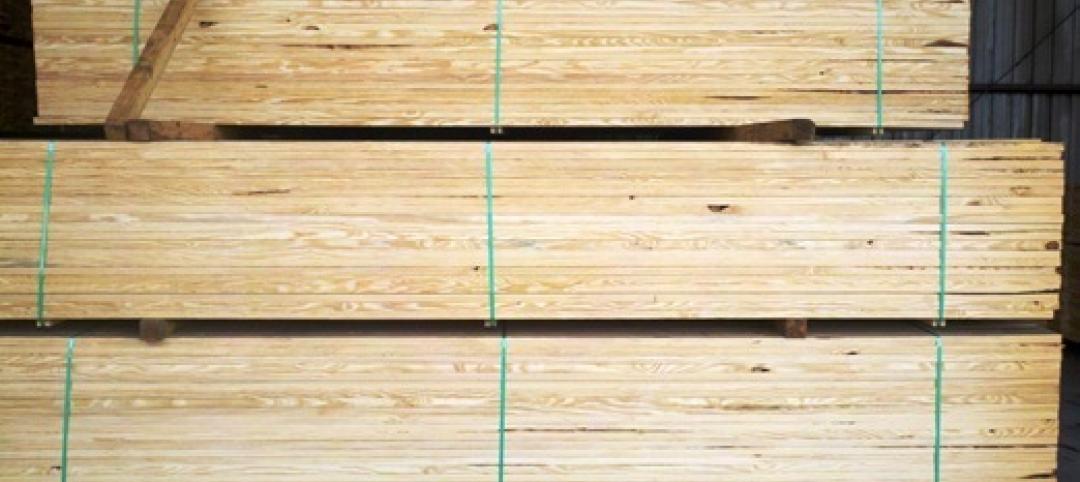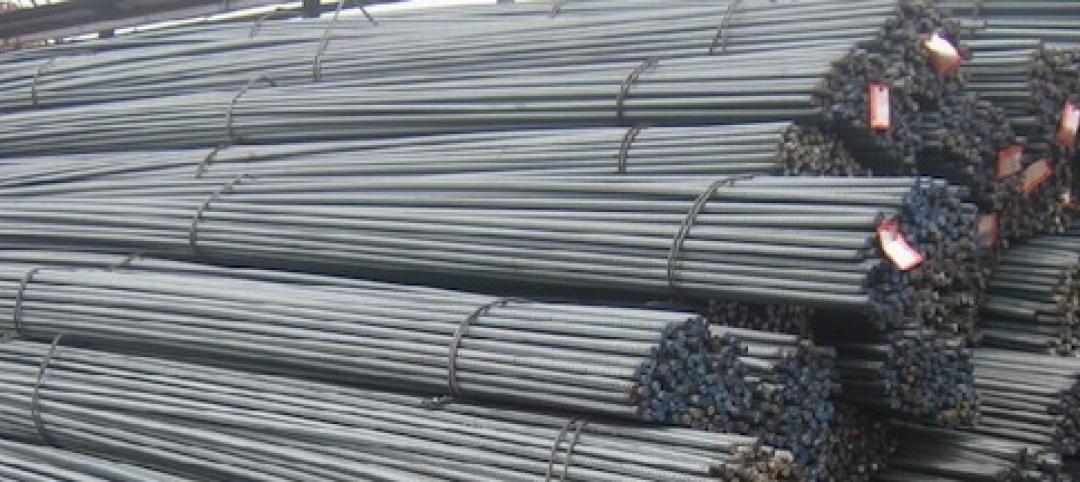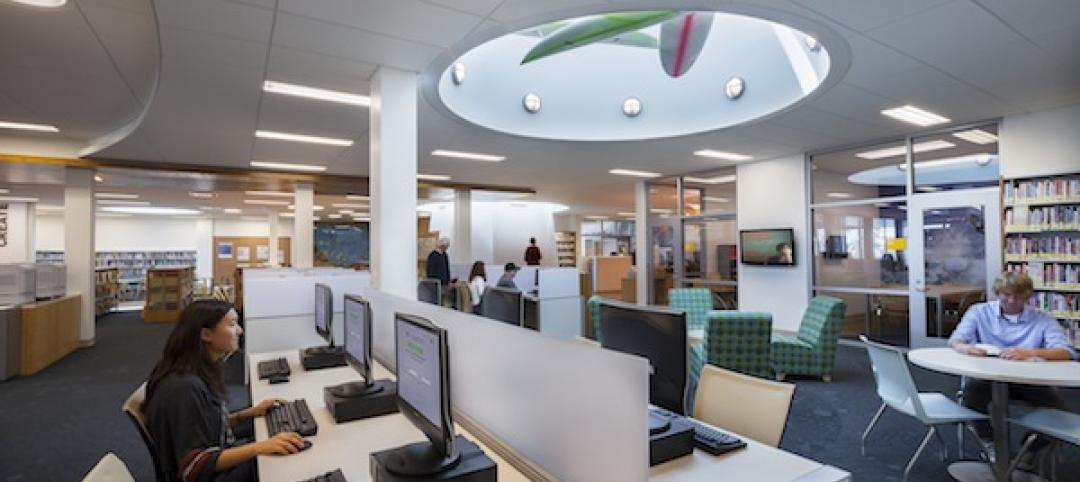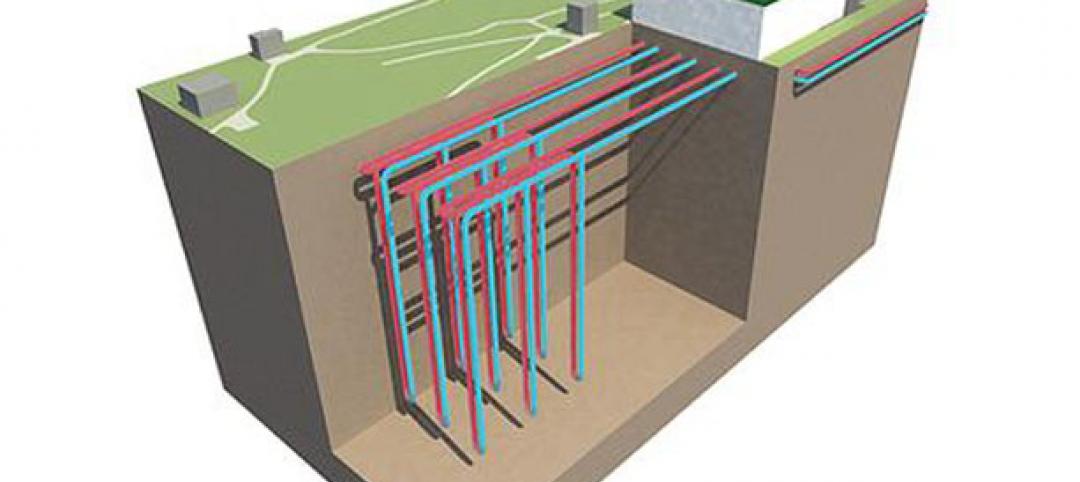New York City developers are using rooftop wind turbines in an effort to attract buyers by highlighting a building’s green credentials.
A recent example is Pearson Court Square, a 197-unit apartment building in Queens which is adorned with three turbines resembling “huge carbon-fiber strands of DNA strung around a 10-foot mast,” according to the New York Times.
“We anticipated a lot of our tenants would be drawn to something different,” Ron Moelis, principal of L&M Development, the developer of Pearson Court Square, told the Times. The developer has been using sustainable design elements such as solar panels, insulated glass, and super-efficient boilers for many years. This was the developer’s first use of wind turbines.
While conventional turbines require a steady breeze of 10 miles per hour or more, helix-shaped turbines can capture winds from any direction and at lower speeds. The New York State Energy Research and Development Authority helped pay about half the $100,000 installation cost and will study the turbines’ efficacy.
Some green advocates bemoan this use of funds, however.
“A tiny windmill on a big building is just silly — it might as well be a pinwheel,” said Russell Unger, executive director of the Urban Green Council. “It’s a lovely idea, if people want to pay for it and test it out, but as far as return on investment goes, it’s a waste compared to more insulation and efficient building systems.”
Related Stories
| Feb 26, 2013
Southern Pine Inspection Bureau publishes new design values effective June 1
New design values for all sizes and grades of visually graded Southern Pine dimension lumber were published in the Southern Pine Inspection Bureau’s (SPIB) Supplement No.13 to the 2002 Standard Grading Rules for Southern Pine Lumber on Feb. 11.
| Feb 26, 2013
ANSI standard for interior doors open for second public ballot
WDMA I.S.6A-11, Industry Standard for Interior Architectural Wood Stile and Rail Doors and WDMA I.S.1A-11, Industry Standard for Interior Architectural Wood Flush Doors, are now open for their second ballot for recognition as American National Standards.
| Feb 26, 2013
CRSI releases new technical note on stainless steel reinforcing bars
The Concrete Reinforcing Steel Institute (CRSI) has released a new technical note, Frequently Asked Questions (FAQ) about Stainless Steel Reinforcing Bars, to its online collection.
| Feb 26, 2013
Proposed ASHRAE standard revisions would boost requirement for automatic lighting
Proposed changes to the ASHRAE/IES energy standard would require automatic lighting controls in more space types and shorten the times before lighting is automatically reduced or shut off.
| Feb 20, 2013
Bill would make all California state building codes free and open source
California Assembly Bill 292 would make the California Code of Regulations (including the Building Codes) open source.
| Feb 20, 2013
Pittsburgh’s Phipps Conservatory aims for three top green certifications
The $15 million Center for Sustainable Landscapes at Phipps Conservatory and Botanical Gardens in Pittsburgh, a net-zero facility, is applying for certification from three of the world's most stringent green rating systems—the Living Building Challenge, LEED Platinum, and the Sustainable Sites Initiative.
| Feb 20, 2013
ANSI/CRRC Cool Roof Standard has been approved
The Cool Roof Rating Council says the American National Standards Institute has given final approval of its ANSI/CRRC-1-2012 Standard after a two-year public review process.
| Feb 20, 2013
Group of West Coast civil engineers developing building standards for tsunamis
A group of civil engineers from around the western U.S. is developing additions to the building code to address the threat of a tsunami.
| Feb 20, 2013
Higher standards, efficiency programs keys to 40% energy usage reduction in commercial buildings since 1980
Commercial buildings have seen a drop in their energy intensity of more than 40% since 1980, according to a recent report from Bloomberg New Energy Finance and the Business Council for Sustainable Energy.
| Feb 12, 2013
Higher education institutions providing leadership on sustainability
More than 665 U.S. colleges and universities have publicly committed to pursue net-zero carbon emissions.












